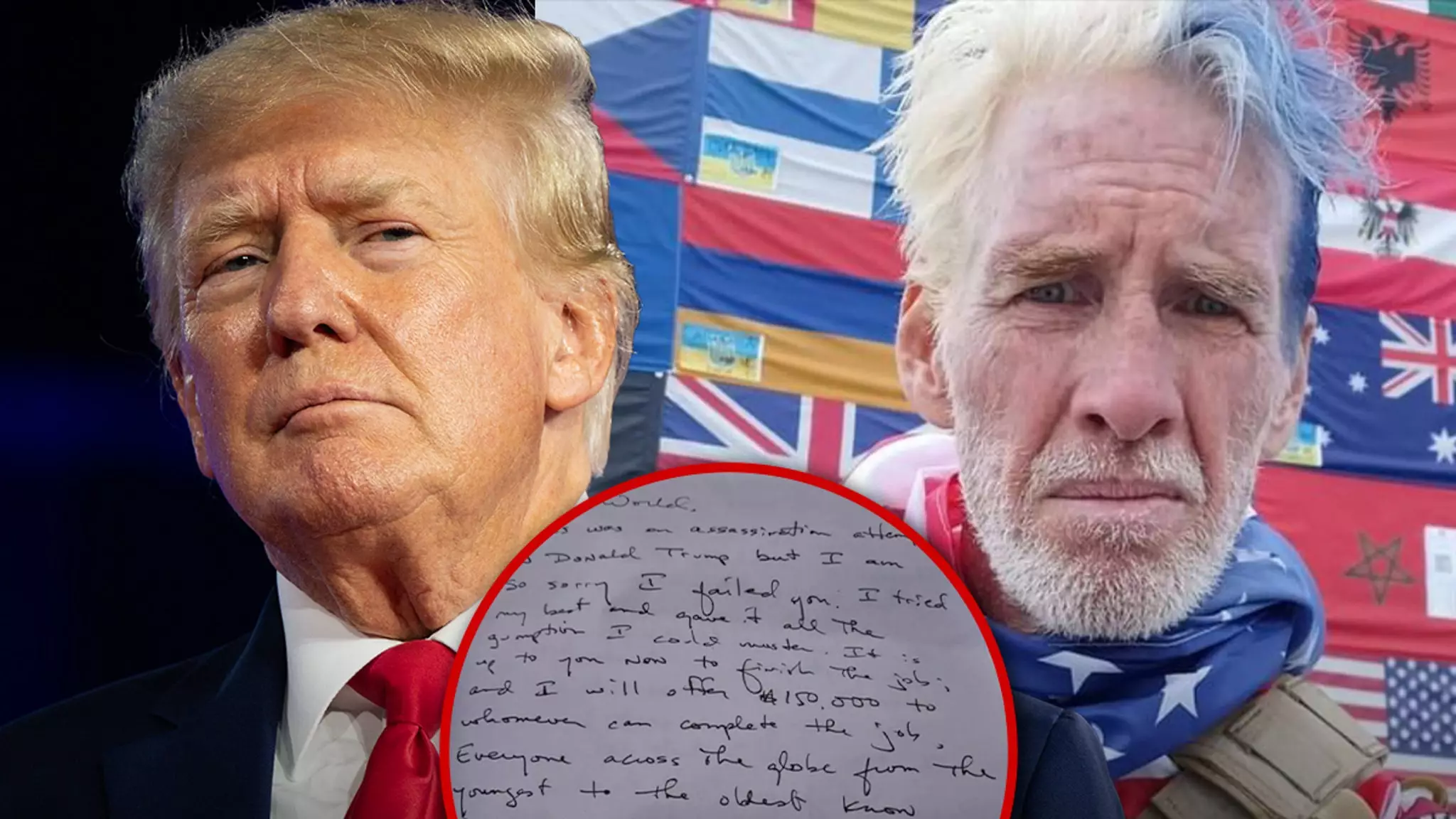The recent arrest of Ryan Wesley Routh sheds light on the alarming reality of threats aimed at public figures, particularly in a politically charged environment. According to federal prosecutors, Routh allegedly harbored strong intentions to assassinate former President Donald Trump, a conviction documented in a letter he penned before his apprehension. This note not only outlines his plans but also attempts to incite others to engage in violence, which is a significant concern for public safety and national security.
The Content of the Threat
In the letter released by the Justice Department (DOJ), Routh’s words paint a chilling picture of his mindset. He described his intentions as a failed assassination attempt and went so far as to offer a $150,000 bounty for anyone willing to carry out the act. Such pronouncements are deeply troubling due to their potential to inspire similar violent thoughts or actions among susceptible individuals. The phrase “finish the job” exemplifies a dangerous mindset that commodifies violence and suggests a willingness to coerce others into participating in lethal deeds.
Routh’s letter, along with disturbing materials like ammunition and a metal pipe, was reportedly found in a box at a private residence. This setting not only indicates the preparation that Routh undertook but also highlights a profound failure in recognizing the signs of violent intent by those around him. The recipient of the box turned it over to authorities only after Routh’s name surfaced in relation to the assassination attempt, indicating a critical delay in addressing the threat he posed.
Investigators have established a timeline pointing to Routh’s meticulous planning, as evidenced by the handwritten list containing dates and locations where Trump was expected to appear. Such documentation raises questions about the lengths to which Routh was willing to go to execute his plans. Additionally, police discovered six cell phones in Routh’s vehicle, with at least one device indicating preparations for travel from Florida to Mexico, potentially pointing to an escape plan.
The Broader Implications
The implications of Routh’s case extend beyond individual failings and delve into the broader societal issue of political violence. Recent years have seen a troubling rise in threats against public officials, exacerbated by a polarized political climate that seems to normalize aggression as a form of political expression. This incident emphasizes the critical need for effective mechanisms to identify and intervene with individuals who exhibit signs of radicalization or violent intent.
As the charges against Routh unfold, this case serves as a stark reminder of the risks that accompany public service in today’s socio-political landscape. Authorities, communities, and citizens must adopt a vigilant stance against potential threats, fostering environments where dialogue and democratic engagement can flourish without fear of violence. The prosecution of such cases must be rigorous, ensuring that those who express or act on violent intentions are held accountable, thereby protecting the core tenets of democracy.

